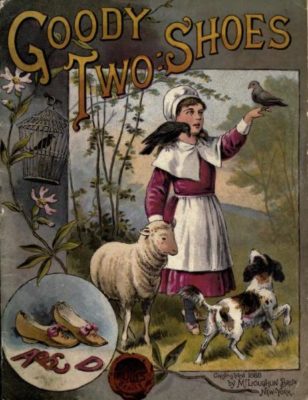Taking Stories To The Culture
Western 21st century culture is all about entertainment. In fact there are some “industries” that pride themselves that they have made your entertainment their number one focus. Others aren’t quite as open about the fact, but in reality, there is no other reason for their existence. I’m thinking of the movie industry here. I mean, they want to make money and that won’t happen if they put out movies no one wants to see. They don’t tell you that their chief end is to entertain you like a certain casino that says otherwise in their ad, but there’s no doubt about it: they want blockbusters, movies that rake in big bucks because the public is flocking to see them.
Movie makers don’t say, We’re trying to make movies that influence the culture. Or, We’re trying to make movies that are beautiful and artistic. Or, We’re trying to make movies that are truthful. Why? Because they understand our culture correctly: people want to be entertained.
 The value of the entertainment factor is apparent simply by looking at how many people attend or watch football on any given weekend, versus the number of people who visited a local museum. Or perhaps, church.
The value of the entertainment factor is apparent simply by looking at how many people attend or watch football on any given weekend, versus the number of people who visited a local museum. Or perhaps, church.
The idea of leisure in this culture seems to have become synonymous with “be entertained.” Once, leisure was simply time that was freed up to do what you want. But “what we want” these days, seems to be entertainment.
This is the culture into which God has put Christians living in western society in the 21st century. So, how should we then live? More specifically, how should we then write? Or read?
I know some Christians who believe we should write the very best stories we can, and by using the gift God has given us, we bring glory to His name. But I wonder if entertaining people is a way of writing good stories.
I haven’t done an in depth study, but what I know about the history of novels, I tend to think that entertainment is a residual effect, not a primary purpose of stories at their inception. We know from Scripture that parents were to tell their children about the amazing things God did for His people in freeing them from the slavery they endured in Egypt. The point was two-fold: preserve the history of what happened, and teach the children the values that their parents and grandparents held. Some of the “telling” was actually enacted in a kind of “living play” as they held the Passover meals or made booths to live in for a week.
Jesus told a lot of stories, too. None of them was for entertainment value, though I’ve wondered if initially large crowds didn’t follow Him in part because they liked hearing His stories. But what we know from the gospel writers is that Jesus told stories to answer questions, to illustrate a point, to give the people something new to think about.
Early novels—which were a relatively new art form, and were, in fact, suspect by many when they first surfaced—followed much the same purpose. Above all, novels showed. They showed the people in Europe and the East what life was like in the wild, wild West. They showed what slavery was like, what war was like, what working in coal mines was like, what the abuses of the railroad were like, what the conditions were like in the meat industry, what life was like for the “high class” poor, and on and on. A book entitled Pride and Prejudice was not primarily a love story, though it certainly included love stories. More than one.
But the entertainment value of novels only drew people, though some aspects of novels were highly fictionalized. Consequently, many who read the tales of Wild Bill Hickok or Annie Oakley or Davy Crockett or other well-known figures, received a distorted view of the way things were. Much the way people today who have never visited the US have a distorted view of what life in the States is like because they are basing what “they know” from movies.
 Nevertheless, a number retained the goal to pass along values to the next generation. Consequently Pilgrim’s Progress became popular, but so did stories by Charles Dickens and even a children’s series about Goody Two-shoes.
Nevertheless, a number retained the goal to pass along values to the next generation. Consequently Pilgrim’s Progress became popular, but so did stories by Charles Dickens and even a children’s series about Goody Two-shoes.
At some point novels seemed to divide. There were “serious” novels and there were dime-store novels. Literature and pulp fiction. Art and entertainment. Literary fiction and genre fiction.
So why are Christians writing fiction? Where do we fit in this paradigm? We’ve discussed this topic before here at Spec Faith. One example is this article.
Obviously people will have their own individual reasons for writing. I’ve also mentioned that some believe using their God-given talent is enough to honor God for the giving of it.
I have questions about that, and I think Christians can do better. Maybe writing well is sort of the bottom rung of accomplishment. “Good, we’ve entertained well.” Perhaps we’ve entertained by giving “clean fiction.” (There’s actually a small publisher that is called that, I believe). Maybe we’ve entertained well because we weave the same kinds of stories that any other writer writes; we just do it well.
I suggest that’s the low rung.
Christians are to live in a way that points to God, that identifies us as uniquely followers of Jesus. Christians are also to go and tell the good news of Salvation, of Jesus and what He’s done for us.
I suggest that Christian novelists, writing in a culture that loves entertainment, that values stories, are in a unique position. Not just to return to the former purposes of stories, and not just to be like all the others writing entertaining stories. But I think we can and should marry the two. We should be creating stories that show the world what’s what spiritually. We should entertain, by writing truth, by creating beauty.
Easy? If it were, we’d have shelves of books that have won prizes handed out by those who value literature and art, as well as having reached the New York Times best-seller lists. No, it’s not easy. But I think it’s worth aiming to write to our culture what our culture needs to hear.






























Some of this depends on what one means by ‘entertaining’. Like, entertaining in the sense that it helps people relax, burn off steam for a bit or even not be bothered by an activity? Or entertaining in the sense that it occupies people away from their boredom and gives their brains something important to chew on even if they find it upsetting?
If a story isn’t entertaining in one of those ways, though, it’s going to be a lot harder to get someone to even pay attention or think about a lesson the story presents in the first place. And if something is high quality it will often be entertaining, too.
That said, different people have different niches. Some people are called to write stories that are entertaining in only one of the ways mentioned above, while others might be called to both. But people can actually do a lot of good from both ends.
As for mainstream or liberal media, it may want to entertain, but many of those participating in it want to change the culture while they’re at it.
Margaret Atwood just released a sequel to A Handmaid’s Tale that’s pretty much instantly pushed into the category of Important Literature. She’s had to be consistently good for MANY years to accomplish that.
In another category, Nora Roberts and Mercedes Lackey churn out so many potboilers a year that I wonder if they have impoverished English majors chained in their basements. (And you will have to pry Lackey’s potboilers out of my cold, dead hands because they are my Happy Nice Time trash.)
I might try watching Handmaid’s Tale someday. Maybe. Or at least give it a shot. Might be a little hard to motivate myself to, since now days I usually feel like watching anime by myself and live action with other people, for some weird reason. But from the tidbits I’ve heard of it, it sounds like it could be interesting and pretty reasonable quality, so yeah.
I highly recommend Atwood’s novel Oryx and Crake. A fable of scientific hubris run amok.
But be forewarned. It’s pretty bleak.
Bleak’s good with me, as long as I like the story itself 😛
A big problem I have with the Prairie Romances I gorged on as a stupid, teen girl is the lack of truth they contain. A reason I dislike the whole romance genre. Beautiful yes. But no more realistic than a Barbie doll. And therefore untrue.
I read literary fiction and well crafted spec fiction.
Fantasy and sci fi are unrealistic but that’s excusable. Kids learn early on you can’t transport through closets to magical lands. But “realistic” romances fool girls–leading to warped views of life and relationships. And often foolish life choices.
And “Christian romances” are the worst.
Jane Austen’s novels aren’t romances BTW. Too cerebral with believable characters. Coming of age is what I call them.
This gives me lots of thinks. I’m trying to assemble the most coherent of them.
But aside from the problems of romance stories in general, i.e. not enough conflict to drive a novel-length story without manufactured bull, Christian culture is just kinda terrible about the psychology of romance and relationships. The culture pushes this formula about girl + boy + Jesus rules = Happy Marriage Life Goals. And there’s TONS of pressure in the culture to maintain the illusion when the simplistic rules aren’t working, especially with the Culture Wars to Own the Gays and the Feminists.
Sadly… that’s true.
We can write about truth and beauty and still be entertaining. The Narnia stories, and Charles Williams’ spiritual thrillers, and of course The Lord of the Rings, all entertain and point readers toward spiritual truths. And God is endlessly inventive; he can use many kinds of literature to wake people up to his truths. I became fascinated by C.S. Lewis after reading The Silver Chair, which I didn’t understand but the atmosphere in it was amazing. Then at a crucial time in my life, I picked up Mere Christianity, which gave me a new life.
I feel like Buzzfeed is personally attacking me with this one: https://www.buzzfeed.com/tomvellner/funny-tumblr-posts-about-writers?utm_term=.npOAAzw4D&bfsource=bbf_enus#.sjDnnVv9q
😛 Why?
Movie studios may just be interested in entertaining people and recouping their multi-million dollar investments, but i don’t think many writers or even directors are. I can’t count how many interviews i’ve read or seen where creators are saying “I wanted to show people that X is possible” or “This movie/book/album/game touches on important issues for me”. I can even think of media that started out as pure entertainment, but while the writer(s) started out just by cracking jokes, somewhere along the line they wound up telling complex stories with deeper themes.
Certainly seeking just to entertain can be a low bar (though i think there’s room for some literary comfort food, provided it’s not over-indulged). My personal forays into Christian fiction have not had that problem. All of them were trying to say something. The problem wasn’t that they weren’t entertaining (though not all of them were), but that it wasn’t told well.
The creators of entertainment almost always insert their worldview(s) into what they write or otherwise produce. And people who consume entertainment are almost always eventually affected by the worldview that’s embedded in the entertainment.
Yes, there are exceptions–entertainment that seems to mean nothing and people who can absorb entertainment and not be affected by the worldview it espouses. Or even go the opposite direction of the worldview–that happens sometimes. But not much. Most people wind up being influenced by the worldview of the stories they embrace by becoming sympathetic to those worldviews and most stories have worldviews.
That’s why Christians should be writing and otherwise producing art. Not because we want to be just like the world around us, but because we want to be different from the world around us. We want to have quality in what we produce and love the stories we make–but we also know our worldview(s) will come out in the stories we make, sometimes deliberately, sometimes not.
Because there really is a spiritual war going on for souls and we really should be about the business of either: 1) protecting the flock of God or 2) reaching those not in the flock. Entertainment is a means not only to express the creativity that reflects the image of God (which it does), entertainment by Christians should also be doing 1 or 2, even if very subtly and indirectly.
This sounds enough like my dad and his Focus on the Family-fueled worry-parties that I’m rolling my eyes from pure reflex.
What’s got you worked up? Watch some Natsume’s Book of Friends and relax.